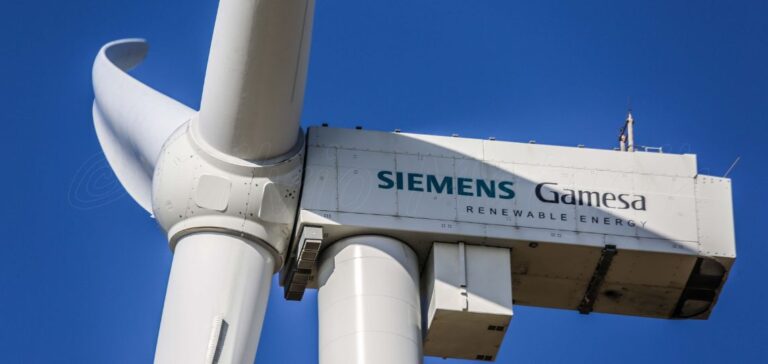Siemens Energy raises its cash flow forecast for the second time in three months, thanks to growing demand for its power grid equipment and gas turbines. After a crisis at its Siemens Gamesa wind power division, the company is experiencing positive momentum.
Last year, Siemens Energy had to seek project guarantees from the German government to remedy quality problems in its wind power division.
Rising demand for electricity and the increased need for gas turbines, grid components and maintenance services have boosted the company.
Siemens Energy, a direct competitor of GE Vernova, Vestas and Goldwind, has seen its shares more than double since the start of the year, making it the DAX index leader in terms of performance.
Financial Results and Outlook
The company is now forecasting pre-tax free cash flow of between 1 billion and 1.5 billion euros for 2024, compared with a maximum of 1 billion euros previously.
Third-quarter sales rose by 18.5% to €8.8 billion, exceeding analysts’ expectations of €8.6 billion.
GE Vernova also raised its outlook recently, buoyed by increased demand for its electrical equipment, as global markets increase their exposure to renewable energies and modernize their existing grid infrastructures.
Challenges and reorganization at Siemens Gamesa
Siemens Energy has slightly reduced its loss forecasts for its Siemens Gamesa wind power division, now anticipating a loss before exceptional items of up to 2 billion euros, compared with a potentially higher loss forecast previously.
Siemens veteran Vinod Philip took over the reins of this division at the beginning of August and has already begun restructuring the company.
The update of statistical models for the 4.X and 5.X wind turbine classes, at the center of the quality crisis, has not resulted in any significant material impact, allaying concerns about possible additional costs.
Strategy and future prospects
Siemens Energy’s strategy is based on the continuing increase in demand for electricity, which is driving markets to invest in more modern and efficient infrastructure.
The growing need for energy transition is also strengthening Siemens Energy’s position in the global market.
The company is counting on its power grid and gas turbine divisions to offset the losses of Siemens Gamesa.
Siemens Energy continues to improve the quality and reliability of its products, particularly in the fiercely competitive renewable energies sector.
The ongoing restructuring of Siemens Gamesa, under the leadership of Vinod Philip, aims to stabilize this division and strengthen its competitiveness.
Siemens Energy’s resilience in the face of challenges in its wind power division, and the growing demand for its key products, point to solid recovery momentum.
Continuous improvements in product management and quality should strengthen the company’s position in the global renewable energy market.






















